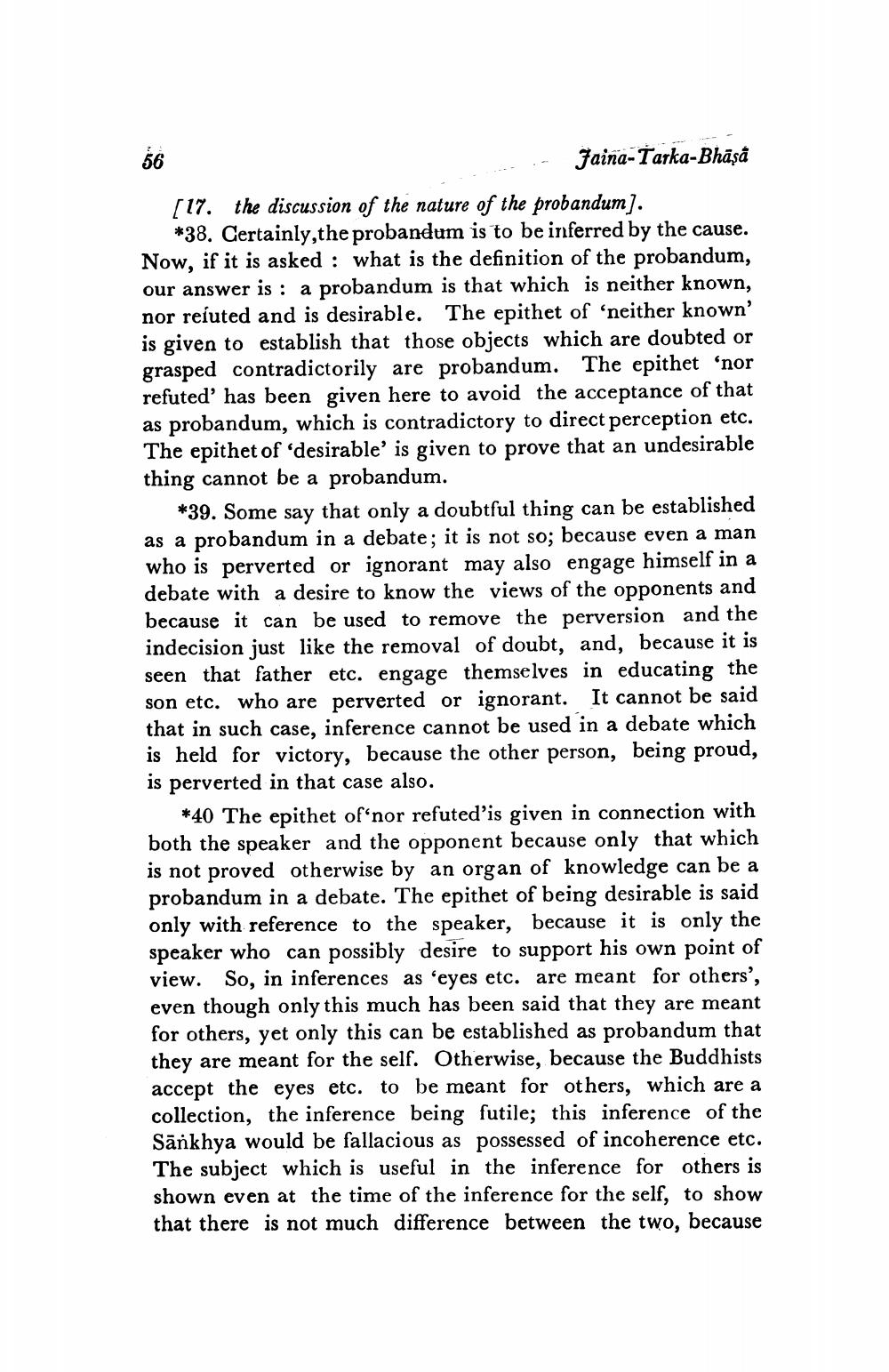________________
Faiña-Tarka-Bhāṣā [17. the discussion of the nature of the probandum].
*38. Certainly,the probandum is to be inferred by the cause. Now, if it is asked : what is the definition of the probandum, our answer is : a probandum is that which is neither known, nor reíuted and is desirable. The epithet of 'neither known' is given to establish that those objects which are doubted or grasped contradictorily are probandum. The epithet 'nor refuted' has been given here to avoid the acceptance of that as probandum, which is contradictory to direct perception etc. The epithet of 'desirable’ is given to prove that an undesirable thing cannot be a probandum.
*39. Some say that only a doubtful thing can be established as a probandum in a debate; it is not so; because even a man who is perverted or ignorant may also engage himself in a debate with a desire to know the views of the opponents and because it can be used to remove the perversion and the indecision just like the removal of doubt, and, because it is seen that father etc. engage themselves in educating the son etc. who are perverted or ignorant. It cannot be said that in such case, inference cannot be used in a debate which is held for victory, because the other person, being proud, is perverted in that case also.
*40 The epithet of nor refuted'is given in connection with both the speaker and the opponent because only that which is not proved otherwise by an organ of knowledge can be a probandum in a debate. The epithet of being desirable is said only with reference to the speaker, because it is only the speaker who can possibly desire to support his own point of view. So, in inferences as 'eyes etc. are meant for others', even though only this much has been said that they are meant for others, yet only this can be established as probandum that they are meant for the self. Otherwise, because the Buddhists accept the eyes etc. to be meant for others, which are a collection, the inference being futile; this inference of the Sankhya would be fallacious as possessed of incoherence etc. The subject which is useful in the inference for others is shown even at the time of the inference for the self, to show that there is not much difference between the two, because




